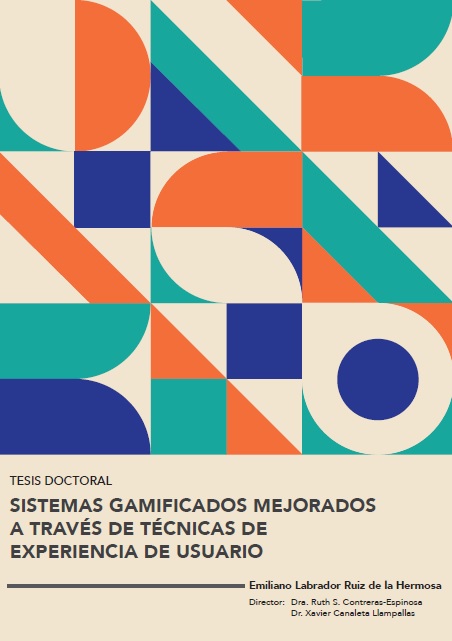Mr. Emiliano Justo Labrador’s Thesis Lecture


The use of gamification is increasingly common in areas such as education, human resources or health. Being a relatively new discipline, there are not enough studies to find a pattern of success in its use and, therefore, an accepted definition. User-based design methodologies have shown that including users throughout the development process improves the results significantly. However, of the numerous gamification frameworks that exist, there are few who have users in any part of the creation and development process, and none who do so at all stages of the process.
This doctoral thesis aims to discover the optimal process of designing a methodology to create gamified systems using the case study as a research methodology. For this, it has been necessary to define what a gamified system is, so an exhaustive study of the literature has been carried out that has made it possible to understand in depth the state of the current question about the game and its characteristics. Then it has been verified that user experience techniques (UX) improve a gamified system, so the most used have been studied, which has allowed us to lay the foundations of how users can be present in each of the stages of the methodology. Finally, the Fun Experience Design (FED) methodology has been developed for the design of user-centered gamification.
Both for the development of the EDF methodology and for its validation, the Case Study has been applied as a research methodology. Two independent case studies have been developed that have allowed us to refine the methodology and validate which gamification and / or UX elements are most appropriate at each stage of the implementation.
The first Case Study was carried out in a university academic environment, specifically in a core subject of the first engineering course of La Salle Campus Barcelona - Ramon Llull University. The study was carried out for four consecutive years, so that with each iteration improvements were made to the system and advances in the design of the FED methodology.
The second Case Study was carried out in a secondary school environment, making a board game to teach these students logistics concepts and awaken in them the vocation to carry out higher studies in logistics. As in the previous case, surveys were carried out before the development (to know the motivations and needs of the users) and after the implementation (to have qualitative data that would allow an adequate redesign).
The quantitative and qualitative results of both cases have allowed us to reach a series of conclusions. It has been possible to define what a gamified system is, it has been shown that UX techniques improve results in gamified systems and a methodology based on UX techniques has been developed. The findings open a path for experimentation for both researchers and professionals that will allow further progress in this field.
Keywords: Gamification, user experience, case studies, user-centered design methodology